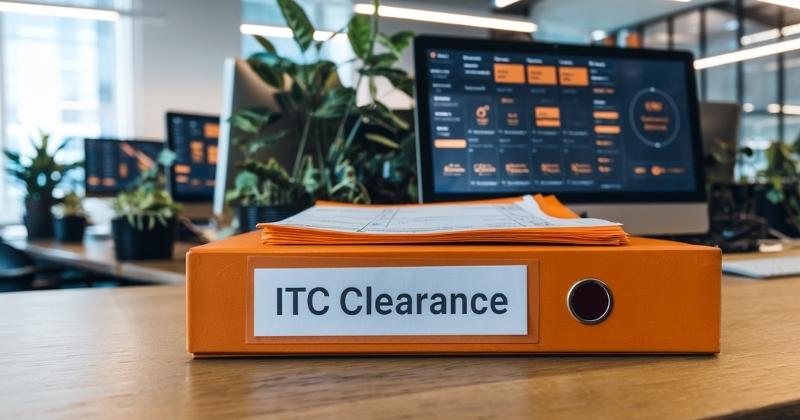
ITC clearance is a crucial factor in improving your credit rating. By addressing and settling outstanding issues on your credit record, such as overdue payments, loan defaults, or credit card debts, you can remove negative details that may be affecting your credit score. Understanding the ITC clearance process and how to achieve it is particularly important for those with judgments against their name or a poor credit history.
Key Takeaways
- ITC Clearance Process: In South Africa, ITC clearance involves removing negative judgments or flags from an individual’s credit record, which can improve their credit rating and increase their chances of securing future loans.
- Steps for Clearance: To clear your name from ITC, you must negotiate settlements with creditors and obtain a clearance certificate from the National Credit Regulator (NCR). Debt review can also help those struggling with monthly debt repayments.
- Security Concerns: The ITC clearance process carries security risks, such as the potential misuse of the process to conceal poor credit history and the risk of identity theft when personal information is shared during the clearance process.
About Arcadia Finance
Arcadia Finance makes securing your loan hassle-free. Skip the application fees and choose from 19 top lenders, all fully regulated by South Africa’s National Credit Regulator, ensuring a quick and reliable solution to meet your financial needs.
What is ITC Clearance in South Africa?
TransUnion, formerly known as ITC, rebranded in 2003 and remains one of the leading credit bureaus in South Africa. ITC Clearance is the process of removing negative judgments or flags from an individual’s credit record. For those with a poor credit history, obtaining ITC Clearance is a key step toward improving their credit rating and accessing financial opportunities.
In some cases, this process involves removing a debt counselling indicator from the credit report, which also requires the individual to exit the debt review process. For those seeking clearance related specifically to debt review, a debt review clearance certificate is needed to proceed with ITC clearance.
Judgments are essentially markers placed against your name by creditors through the credit bureau, usually due to missed payments or delayed repayments of debts, including loans. This can affect anyone whose expenses consistently exceed their income and available resources. Such judgments and negative credit records can limit access to further loans and credit facilities, often creating obstacles when financial assistance is needed most.

Benefits of ITC Clearance
Judgments and a poor credit history can significantly affect various aspects of daily life, often making it difficult to secure financial support when needed. Achieving ITC clearance can lead to a noticeable improvement in your overall financial situation. Here are some key benefits of obtaining ITC clearance:
- It allows you to apply for additional credit, such as home loans, which may have been previously inaccessible due to a negative credit record.
- It helps reduce financial pressure by removing the restrictions imposed by judgments, offering more flexibility in managing your finances.
- It enables you to better support your family without being hindered by past credit issues, as you can access loans and credit facilities when necessary.
- It provides a fresh start with your credit history, allowing you to make more informed decisions for any future credit applications or loans.
A low credit score can be the barrier that keeps you from getting clearance, so knowing what constitutes a ‘good’ score will help you on your journey toward financial rehabilitation.

How Can I Get an ITC Clearance?
To clear your name from the ITC, you need to negotiate with your creditors and reach a formal agreement to settle any outstanding debts. Once these arrangements are finalised, you can request a clearance certificate from the National Credit Regulator (NCR), which confirms that all previous credit restrictions have been removed.
Managing this process can be particularly challenging without the right knowledge, experience, and resources. It often involves detailed and complex discussions with creditors, which can be overwhelming and stressful, especially if you are handling it alone.
If you are struggling to keep up with your monthly debt repayments and are aiming to clear your credit record, undergoing a debt review might be a practical option to consider.

Debt Review
Debt review is a formal process established under the National Credit Act (NCA) to assist individuals who are struggling with managing their monthly finances. This procedure is designed for those who find themselves overwhelmed by debt and unable to keep up with their payments.
The main aim of debt review is to guide individuals towards becoming debt-free. A licensed Debt Counsellor will assess your financial situation and create a customised repayment plan. This plan typically includes:
- Lowering monthly debt payments to a more manageable level.
- Reducing interest rates on existing debts, making repayments easier.
- Safeguarding essential assets, such as your car and home, from being repossessed.

Assessing Eligibility
Before starting the clearance process, it’s important to make sure you meet all the requirements for obtaining an ITC clearance certificate. Your credit history plays a major role in qualifying. A clean credit report is necessary when applying for ITC clearance. This includes settling any outstanding debts and checking for mistakes or inconsistencies on your credit profile. Even minor issues, like overdue payments, can affect your chances of getting clearance.
Following the regulations set by the National Credit Act (NCA) is also a key factor in determining your eligibility for ITC clearance. The NCA provides consumers with rights concerning their credit information, so it’s important to understand these rights before applying. To avoid complications, you can request a free annual credit report from major credit bureaus and carefully review it to identify and fix any problems before submitting your application. Meeting all these criteria is an important step towards securing an ITC clearance certificate and maintaining good financial health.
Regularly monitoring your credit score is essential when aiming for ITC clearance. Fortunately, you don’t have to pay for this service; there are ways to check your credit score for free.

Applying for ITC Clearance
To obtain an ITC clearance certificate, you must submit a comprehensive application that includes all necessary personal and financial details. This includes information about your credit history, such as any past debts, late payments, or defaults on credit agreements.
The application process also requires compliance with the rules outlined in the National Credit Act (NCA). It’s important to understand your consumer rights regarding credit information and ensure that you follow the procedures correctly when applying for credit or seeking debt assistance. Familiarising yourself with NCA guidelines can enhance your chances of securing ITC clearance.
After you submit your application, it may take several weeks or even months to receive a decision. During this time, it is crucial to maintain a positive financial record by making timely payments on existing debts and avoiding new credit. Although the process requires patience and persistence, obtaining an ITC clearance certificate can ultimately lead to improved financial security and peace of mind.

Long-Term Effects of ITC Clearance
The economic effects of ITC clearance require close observation, given the potential for lasting consequences for businesses. Security issues related to ITC clearance are also a matter of concern, as there is a risk of insufficient data protection without appropriate measures. It is crucial to evaluate the economic effects of ITC clearance carefully, as future outcomes for businesses could be both beneficial and detrimental. Additionally, the security concerns tied to ITC clearance must be addressed to prevent possible data breaches that could arise from improper handling.
Economic Consequences
The economic effects of ITC clearance need careful monitoring due to the potential long-term impact on businesses. Security concerns related to ITC clearance are significant, as there is a risk of inadequate data protection without proper measures in place. Evaluating the economic effects of ITC clearance is important because the future outcomes for businesses could be both positive and negative. Additionally, addressing the security issues related to ITC clearance is essential to avoid potential data breaches that could occur from improper handling.
Examining the financial impact of ITC clearance highlights its effect on individuals burdened by excessive debt. When a person is classified as over-indebted, this status is recorded on their credit report, making it very difficult for them to secure any form of credit in the future. This can restrict their access to necessary financial resources when needed. However, ITC clearance offers a possible solution for these individuals to have the ‘over-indebted’ status removed from their credit record, which may eventually allow them to access credit again.
Security Risks
Although there might be benefits such as improved credit access and increased economic activity, the process brings its own set of security concerns. A major issue arises when individuals with a sequestration order or insolvency on their credit bureau record use ITC clearance to hide these negative marks from future creditors. This creates a risk for lenders, who might not have all the necessary information when evaluating creditworthiness. Furthermore, it puts other borrowers at risk by enabling those with potentially unstable finances to obtain loans that they might not be able to manage.
Another security concern related to ITC clearance is the risk of identity theft. When individuals request their credit report and bureau records for ITC clearance purposes, they expose personal details that could be exploited by fraudsters. This highlights the need for strong safeguards and secure procedures to handle sensitive financial information throughout the ITC clearance process.
Conclusion
ITC clearance in South Africa can be an important step for individuals aiming to improve their credit rating and restore financial stability. By removing negative entries from credit records, it creates opportunities for future credit applications, helping to alleviate financial pressures. However, the process involves careful negotiation with creditors and compliance with the National Credit Act’s guidelines. While ITC clearance offers considerable benefits, it also comes with security risks that need to be managed with strict safeguards. Ultimately, achieving ITC clearance can provide a fresh start, but it requires thoughtful consideration of both its benefits and possible drawbacks.
Frequently Asked Questions
ITC clearance refers to the process of removing negative judgments or flags from an individual’s credit record in South Africa. It is crucial for those with a poor credit history, as it can enhance their credit rating, making them eligible for future loans and other financial products. This process offers a fresh start and can relieve financial pressure by removing restrictions related to past credit issues.
To clear your name, you need to negotiate and settle any outstanding debts with your creditors. Once settlements are completed, you can apply for a clearance certificate from the National Credit Regulator (NCR). This certificate confirms that all previous credit restrictions have been lifted. For those struggling with monthly repayments, undergoing a debt review can be a helpful step towards achieving ITC clearance.
The duration of the ITC clearance process can vary based on several factors, including the complexity of the individual’s credit situation and the time required to negotiate and finalise settlements with creditors. Some cases may involve straightforward negotiations, while others could be more complex, resulting in a longer process. After submitting the necessary application and documentation, it typically takes several weeks, and in some instances, it could extend to a few months before a final decision is reached.
Yes, you can apply for ITC clearance even if you are under debt review. However, you will need to complete the debt review process and obtain a debt review clearance certificate. This certificate indicates that your financial situation has been stabilised and that you have met the necessary conditions for ITC clearance.
ITC clearance presents certain security risks, including the potential misuse of the process by individuals attempting to hide past insolvency or sequestration orders. Additionally, there is a risk of identity theft when personal information is provided during the clearance process. It is crucial to implement robust safeguards to ensure that sensitive financial information is protected.
Fast, uncomplicated, and trustworthy loan comparisons
At Arcadia Finance, you can compare loan offers from multiple lenders with no obligation and free of charge. Get a clear overview of your options and choose the best deal for you.
Fill out our form today to easily compare interest rates from 19 banks and find the right loan for you.


